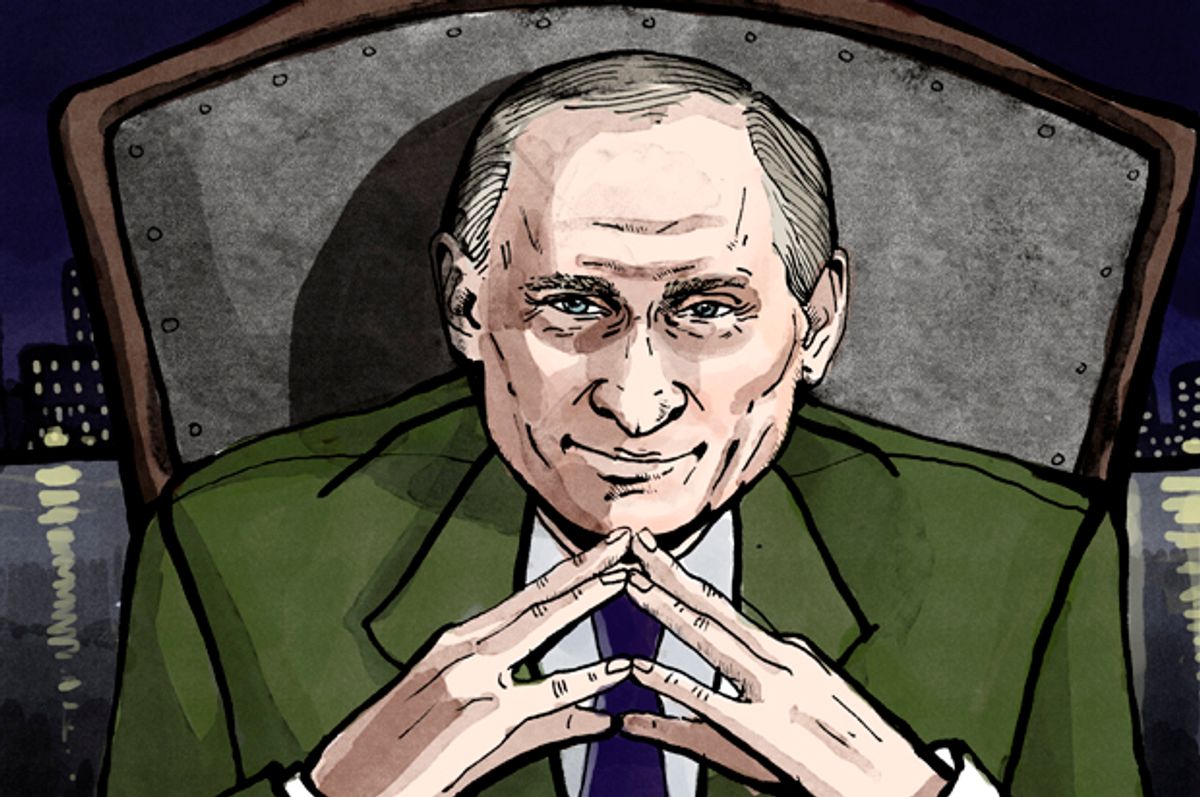Last week, Harvard lecturer and Slate columnist Yascha Mounk tweeted a photograph of a room full of chairs. On each chair was a photograph of a deceased Russian journalist. The intent, Mounk said in the tweet, was to remind people of the “human cost of dictatorship.”
“All these are journalists who criticized Putin — and died under mysterious circumstances,” he wrote.
The only problem was, Mounk’s tweet wasn’t exactly accurate. In fact, it was pretty far away from accurate. Damir Marusic, the executive editor at the American Interest, stepped in to correct Mounk’s information, pointing out that more than half of the pictured journalists actually died before Vladimir Putin rose to power in Russia — and some died in war zones. In other words, they definitely were not all murdered because they publicly criticized Putin.
Many Twitter users chimed in to lambaste Mounk for failing to fact-check or properly research the photograph he posted. Others wondered why American journalists were less concerned for the well-being of their Russian colleagues when they were murdered during Western-supported President Boris Yeltsin’s tenure in the Kremlin.
Mounk’s was hardly an unforgivable error, but it is illustrative of how false information spreads far and wide — and fast. His original tweet amassed more than 54,000 re-tweets. In comparison, his follow-up correction managed to gather a measly 187 retweets.
What’s more, there’s no real pressure for Mounk to delete this misleading tweet because it advances an acceptable narrative: Putin’s Russia is bad and if we badly muddle the facts, it doesn’t matter much.
Don’t get me wrong. There is no doubt that serious investigative journalism in Russia is a dangerous business, but there is no use in exaggerating the scale of the problem for effect. Sensationalizing or “overhyping” the issue, as Marusic put it, isn’t helpful.
The reality is, to attribute every death or murder of a critic to Putin himself may be giving him far too much credit. Mounk’s tweet plays into the notion that Putin is an omnipresent being; that nothing happens in Russia without his say-so, framing him as an all-seeing, all-hearing figure who controls what happens in every town and village across the land.
Two of the most high-profile murders that many have linked to Putin are those of journalist Anna Politkovskaya in 2006 and opposition figure Boris Nemtsov in 2015. Both Politkovskaya and Nemtsov were also highly critical of Putin appointee Ramzan Kadyrov, who rules over Chechnya like a personal fiefdom and sees no problem in publicly threatening “traitors” and journalists who displease him. That’s when he’s not expressing support for honor killings and fundamentalist Islam. It is widely believed, particularly in the case of Nemtsov, that Kadyrov was the one to order his killing — and five Chechens linked to him have been jailed for the murder based on forensic evidence.
As Russian journalist and Putin critic Leonid Bershidsky put it in a column earlier this year, by empowering the likes of Kadyrov and the thugs who pledge loyalty to him, it is the system that Putin presides over that becomes the killer, not Putin himself. “To call Putin a killer,” Bershidsky wrote, “is to reduce Russia's problems to the size of Putin's compact body.”
I walked over the Bolshoy Moskvoretsky Bridge the night before Nemtsov was gunned down there, in the shadow of the Kremlin. By the time he had been murdered the next night, I was sitting in a St. Petersburg hotel room and the whole world, it seemed, had decided Putin was personally responsible. That was the easiest knee-jerk reaction because patience, complexity and nuance are far less gratifying — especially on Twitter.
Oh, Twitter. It is perhaps the biggest driver in the media’s increasingly flimsy relationship with facts. On an altogether less sinister note, MSNBC’s Joy Ann Reid provides one of the most recent examples of this. On Friday Reid sent out a tweet about Trump’s wives that was littered with multiple overlapping errors:
First off, Ivana Trump is not from Slovakia. She is from what is now the Czech Republic, once Czechoslovakia. Furthermore, Czechoslovakia was never part of Yugoslavia — and while it's true that Melania Trump's homeland of Slovenia is a former Yugoslav republic, none of those countries were ever part of the Soviet Union. Indeed, the historical ignorance goes well beyond that: Yugoslavia broke away from the Soviet bloc in 1948, and remained a non-aligned socialist state until its breakup in 1992.
Arguably this is nothing new: Reid was roundly mocked last September after a series of tweets suggesting that she appeared to believe Russia was still a "communist" nation and repeatedly referring to Putin as "Comrade Vladimir." Aside from the number of basic errors in Reid's Friday tweet, it is also blatantly xenophobic in its implication that there is something inherently suspicious about Eastern Europeans or those who associate with them. Still, it remains undeleted on her page.
Former CNN contributor Donna Brazile — who was fired for sharing debate questions with Hillary Clinton’s campaign — tweeted recently, in response to a tweet from the Russian embassy, that “the Communists” were now dictating the terms of debate between the two countries. When reminded that Russia is most definitely not even remotely Communist anymore, she doubled down, responding: “They no longer call themselves KGB either. Bye boo.”
Fake news is by no means the special purview of conservatives. Or maybe these are just alternative facts, liberal style.



Shares